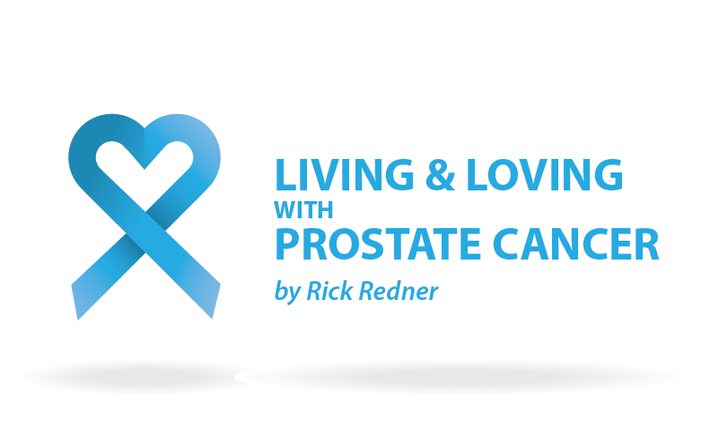
It won’t take too long in your journey with prostate cancer before you’ll hear someone say, “You have the good cancer.” I understand the person saying that means well. There’s some basis in survival rates to think that prostate cancer is the “good cancer.”
The five-year survival rate for most men with local or regional prostate cancer is almost 100 percent. Ninety-eight percent are alive after 10 years, and 96 percent live for at least 15 years. For men whose cancer is confined to their prostate, those survival rates are good news, but there are many sides to living with prostate cancer.
According to Cancer.net, for men diagnosed with prostate cancer that has spread to other parts of the body, the five-year survival rate is 29 percent. Prostate cancer is the third leading cause of cancer death in men in the United States.
Ask a widow or a family member who lost their dad or son to prostate cancer if they think prostate cancer is “the good cancer.”
A large percentage of men who choose to treat their cancer aggressively face lifelong quality-of-life issues such as the loss of urinary control, climacturia, erectile dysfunction, and bladder or bowel irritation, to name a few unwanted quality-of-life issues after treatment. Additionally, living with the possibility of a recurrence or a spreading of the cancer takes a toll, every day.
Unfortunately, the unintended consequence of calling prostate cancer “the good cancer” is that the comment convinces those coping with cancer that you are either ignorant or inconsiderate. I can’t imagine a cancer survivor saying something so thoughtless to another cancer survivor. It demonstrates such a lack of understanding, that it’s a relationship-damaging remark.
I asked men who follow my Facebook Prostate Surgery Support Group for their reactions when someone tells them they have “the good cancer.” Here are a few answers I received:
“Yes… I heard that from one of my sisters. Honestly, I was stunned.”
“Yes many times from the VA employees.”
“Last week a social worker told me well your lucky because it is a slow cancer and I started yelling at her on the phone.”
“Used to piss me off now I just chalk it up to ignorance.”
“I get that all the time. I tell them that my dad died from it and I got it at the age of 42.”
“Many times. Used to piss me off but now I just make a snarky remark like ‘trade you.'”
I wonder if healthy people expect that a prostate cancer patient will change his perspective suddenly and feel grateful or lucky after hearing he’s diagnosed with “the good cancer.”
If you are a cancer survivor, or the healthy partner of a cancer survivor, you know beyond a shadow of a doubt that there is no such thing as a “good cancer.” So, for heaven’s sake, don’t ever say this to anyone diagnosed with prostate, or any type of cancer.
If you’re a healthcare professional and you’ve said this to any of your patients, I hope you’ll realize that you’ve made an error in judgment. If you think it’s appropriate, apologize to any of your current patients who’ve heard this from you. Expect any patient who’s heard you say this to feel angry or resentful. It’s possible they may change their mind and entertain the possibility that you are no longer clueless.
If you are a family member or friend and you’ve told someone who is diagnosed and living with cancer that they are lucky or have a “good cancer,” you’ve probably damaged that relationship, even though you meant well. I suggest you apologize. If you are willing to listen and learn, you can confess your lack of knowledge about coping with cancer and ask what it’s really like to be a cancer survivor.
If you’re a prostate cancer survivor who has heard all about your “good cancer” and you’d like healthy friends, family, or healthcare professionals in your life to understand there’s no such thing as a “good cancer,” share this column with them.
If you’re holding a grudge or you’ve ended a relationship because you were hurt, I hope you’ll consider forgiving anyone who couldn’t understand the difficulties of living with cancer. Cancer taught me that life’s too short to hold grudges.
If there’s someone you’ve held a grudge against for not supporting you in a meaningful way, will you take the first step of forgiving them? Once you’ve decided to forgive someone, will you take the initiative to restore your relationship?
Living with cancer brings more than enough destruction and loss. There’s no need to allow your experiences as a cancer survivor to destroy important relationships.
Allow your experiences as a cancer survivor to mold you into a compassionate, kind, forgiving, and loving individual. Those are qualities cancer cannot take away.
***
Note: Prostate Cancer News Today is strictly a news and information website about the disease. It does not provide medical advice, diagnosis, or treatment. This content is not intended to be a substitute for professional medical advice, diagnosis, or treatment. Always seek the advice of your physician or other qualified health provider with any questions you may have regarding a medical condition. Never disregard professional medical advice or delay in seeking it because of something you have read on this website. The opinions expressed in this column are not those of Prostate Cancer News Today, or its parent company, BioNews Services, and are intended to spark discussion about issues pertaining to prostate cancer.


Dear Rick,
I agree with your commentary. Every person with any disease, cancer or otherwise, needs to be evaluated in the context of their individual biology. Now we are calling this personalized medicine but this is always what we physicians should have been doing to the best of our ability from Time 0. The MD degree, as I have mentioned in many lectures over decades of work with prostate cancer, should equate with “Medical Detective”. The real physician obtains validated info of major prognostic importance and uses all available tools such as nomograms and artificial neural nets and more recently gene expression profiling (GEP) to then advise the patient of his or her options.
In the arena of prostate cancer (PC), the Gleason score is often read by pathologists who are not specifically focused on PC. The same is true of most oncologists who see men with PC; they are not focused on this disease. When I subspecialized in PC starting in 1983, I was shocked at how ignorant I was about many aspects involving PC. So hearing the glib remark about PC as the “good” cancer is no surprise to me. Growing up back East, I remember the wooden plaque on the wall that said “Vee get too soon olde and too late schmart.” —Old Russian proverb
How prophetic was that!?